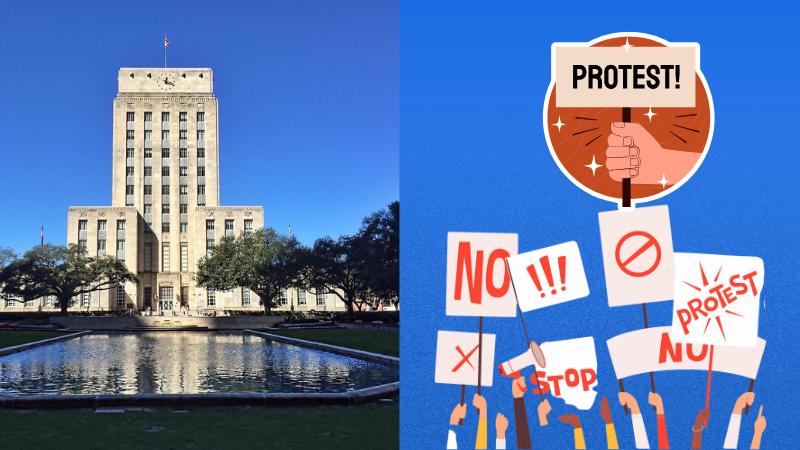
In 2014, former U.S. Supreme Court justices Ruth Bader Ginsburg and Antonin Scalia were asked whether undocumented immigrants are entitled to the rights outlined in the First Amendment of the U.S. Constitution, which guarantees freedoms such as religion, speech, press, assembly, and petition. Both justices agreed that these rights apply to anyone present in the United States, regardless of their immigration status. Ginsburg explained that the Constitution does not limit its protections to citizens, but instead refers to "persons," encompassing both documented and undocumented individuals.
Nearly a decade later, the bipartisan view shared by Ginsburg and Scalia is facing significant challenges as the Trump administration intensifies its efforts to deport undocumented immigrants. These deportation efforts have been especially aggressive in targeting individuals from Venezuela, accused of gang affiliations with minimal evidence, as well as students whose visas or green cards have been canceled due to their involvement in pro-Palestinian protests. Many of these individuals have been detained without access to their attorneys or families, leading to widespread concerns among immigrant rights advocates and legal experts. To better understand the legal framework surrounding immigrant rights in the context of the Trump administration's deportation policies, immigration law experts provided clarity on what civil rights immigrants possess, how their immigration status can be revoked, and the legal recourse available to those facing deportation.
One of the central points of discussion is whether foreign nationals have the same civil rights as U.S. citizens. As Scalia and Ginsburg noted, immigrants, regardless of their status, are entitled to basic protections under the U.S. Constitution, including due process rights. David Leopold, former president of the American Immigration Lawyers Association, emphasized that all individuals present in the U.S. are covered by the Constitution, including temporary visa holders and permanent residents.
However, immigration experts also highlight that a foreign national’s presence in the U.S. is considered a “privilege” rather than an inherent right. As such, immigration status can be revoked under certain circumstances, such as criminal activity or violations of immigration law. This view is reflected in early Supreme Court decisions, which have long treated immigration as a privilege granted by the government. This means that while immigrants have some constitutional protections, they do not necessarily have access to the full range of rights that citizens do, especially when it comes to the revocation of their status.
Despite these protections, the Trump administration's approach to deportation has raised concerns about the erosion of due process rights for immigrants. Neil A. Weinrib, a veteran immigration attorney, explained that the rapid and aggressive nature of the administration’s crackdown has created a climate of fear and uncertainty among immigrants. According to Weinrib, this approach is unprecedented and continues to worsen, with new challenges emerging every day.
The Trump administration has repeatedly defended its deportation policies by framing immigration as a privilege rather than a right. Government officials have stated that visas and green cards are not guarantees of permanent residency and can be revoked for various reasons. For instance, a spokesperson for the Department of Homeland Security argued that a visa is a "privilege, not a right," and that the government has the authority to remove non-citizens at its discretion. This stance has been particularly evident in the administration’s decision to revoke the immigration status of individuals involved in pro-Palestinian protests on college campuses.
Immigration law experts acknowledge that it is not unusual for the government to revoke a visa or green card if certain legal conditions are met, such as criminal behavior. However, the Trump administration's focus on deporting individuals for political activity or minor offenses is unprecedented. Weinrib stressed that the government's increasing involvement in regulating free speech for green card holders marks a new era in enforcement, one that poses significant challenges to the constitutional rights of immigrants.
Furthermore, migrants detained under the Trump administration’s policies retain due process rights, which allow them to challenge their detention and the evidence used against them. Naureen Shah, deputy director of government affairs at the ACLU, voiced concerns about the government's use of vague provisions in U.S. immigration law to justify these actions. She emphasized that immigrants, especially those facing deportation, must be afforded due process, particularly when their green card status is at risk.
The rights of immigrants also differ significantly in immigration courts compared to criminal courts. Unlike criminal courts, immigration courts are part of the executive branch, under the Department of Justice, and they do not provide the same rights to defendants. Immigrants in these courts do not have the right to an appointed attorney, and the courts do not follow the same rules of evidence as criminal courts. A study conducted by the American Immigration Council found that only 37% of immigrants in deportation cases were represented by legal counsel, and the number was even lower for detained immigrants.
The lack of legal representation and due process in immigration courts is a growing concern, as migrants are often moved between facilities, making it harder for them to maintain contact with their attorneys. As immigration attorney Weinrib explained, detainees are often transferred to remote locations, creating barriers to access for both the immigrants and their legal representatives.
In addition, the indefinite nature of immigration detention is another point of concern. While the government claims that detention is "non-punitive," the reality is that detainees can be held for long periods with limited access to legal resources or family support. This "purgatory" situation, as described by Weinrib, can leave immigrants in a state of prolonged uncertainty, unable to fully assert their rights or challenge their deportation.
The question of what rights immigrants possess under U.S. law is a complex and evolving issue, particularly under the Trump administration’s aggressive deportation policies. While immigrants are entitled to certain protections under the Constitution, including due process, their legal status is ultimately considered a privilege, not an inherent right. As legal battles continue to unfold, the rights of immigrants will remain a focal point, with advocates and experts pushing for stronger safeguards against the erosion of due process and civil liberties.












































